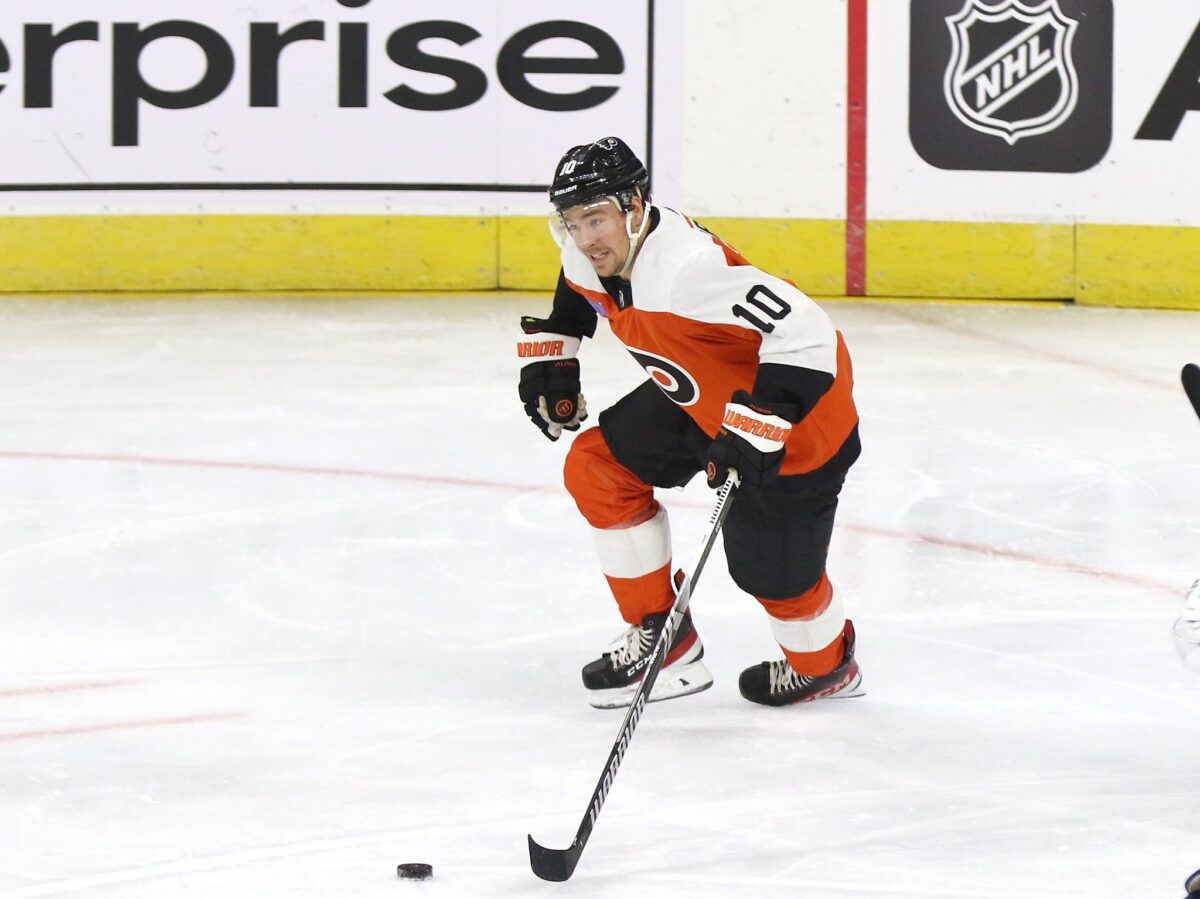After a busy NHL Draft that saw him take seven players and complete four trades followed by three signings of players already in the organization on July 1, Philadelphia Flyers general manager Daniel Brière confirmed he hopes there’s more to come this offseason.
“At the moment, we’re still having some discussions with a few teams on a few different things,” Brière said on July 1. “If that doesn’t happen in the next week, there’s a good chance that yeah, what you see is what will be at training camp. But we’re always trying.”
However, teams have to take care of the little transactions, too. And that’s what Brière did just before the long weekend began by signing restricted free agent Bobby Brink to a two-year contract with an average annual value of $1.5 million.
Brink’s Journey So Far
The deal comes at a nice time for Brink, as he can use it to get something nice when he turns 23 years old on Monday. Like most players of that age, his ultimate role at the NHL level is still up in the air.
His talent, though, is undeniable. Brink showed it during three successful seasons at the University of Denver after the Flyers selected him 34th in the 2019 Draft, even trading up to land him. In his junior year, Brink was one of 10 finalists for the Hobey Baker Award for college hockey’s top player. His 57 points led the nation by a solid margin and he helped the Pioneers to a national championship.
Brink turned pro after winning that title and showed promise in a 10-game NHL trial. He missed the first half of 2022-23 with a shoulder injury and spent the rest of the season with the Lehigh Valley Phantoms, scoring 28 points in 41 games. Expected to return to the American Hockey League last fall, a standout training camp earned him a spot on the NHL roster right away.

Though he did return to the AHL for 13 games in early 2024, Brink spent most of the season in the show. Though he wasn’t always on the right side of head coach John Tortorella’s evaluations, he had an alright rookie year by all accounts, finishing it with 23 points in 57 games for the Flyers.
Most of that offense came early in the season, as Brink scored 18 points in 31 contests before the turn of the calendar year. His slick hands and puck skills are evident. But at 5-foot-8, 169 pounds, he will always be fighting an uphill battle from a size standpoint. Perhaps his second-half drop-off is attributable to getting worn down during his first full season in professional hockey. That’s understandable, but now that he’s no longer waiver-exempt and on a one-way contract, the expectations will be higher.
Putting the Deal In Context
The Flyers were never likely to go long-term with Brink given his lack of NHL experience and the team’s depth at right wing. AFP Analytics‘ contract prediction of two years at roughly $1.47 million was nearly dead on. Yes, if Brink breaks out before 2026, he’ll get a significant raise that offseason as a restricted free agent. But he’s still establishing himself as a full-time NHLer and his ceiling is closer to a quality second-line scorer than a true gamebreaker.
Related: Philadelphia Flyers 2024-25 Prospect Pyramid
While CapFriendly lists the Flyers as having $2.02 million in cap space without tapping into long-term injured reserve (LTIR) (which Brière confirmed the team wants to avoid on Monday), that figure includes Brink’s deal being buried in the AHL, which isn’t likely. If he’s on the NHL roster, the Flyers only have about $870,000 in cap space with 14 forwards, six defensemen and two goaltenders under contract with one more RFA (defenseman Egor Zamula) in need of a new deal. With AFP Analytics predicting a similar deal for Zamula (two years at roughly $1.9 million), Brière may need to make that big move to avoid a short-term cap crunch or LTIR usage.
